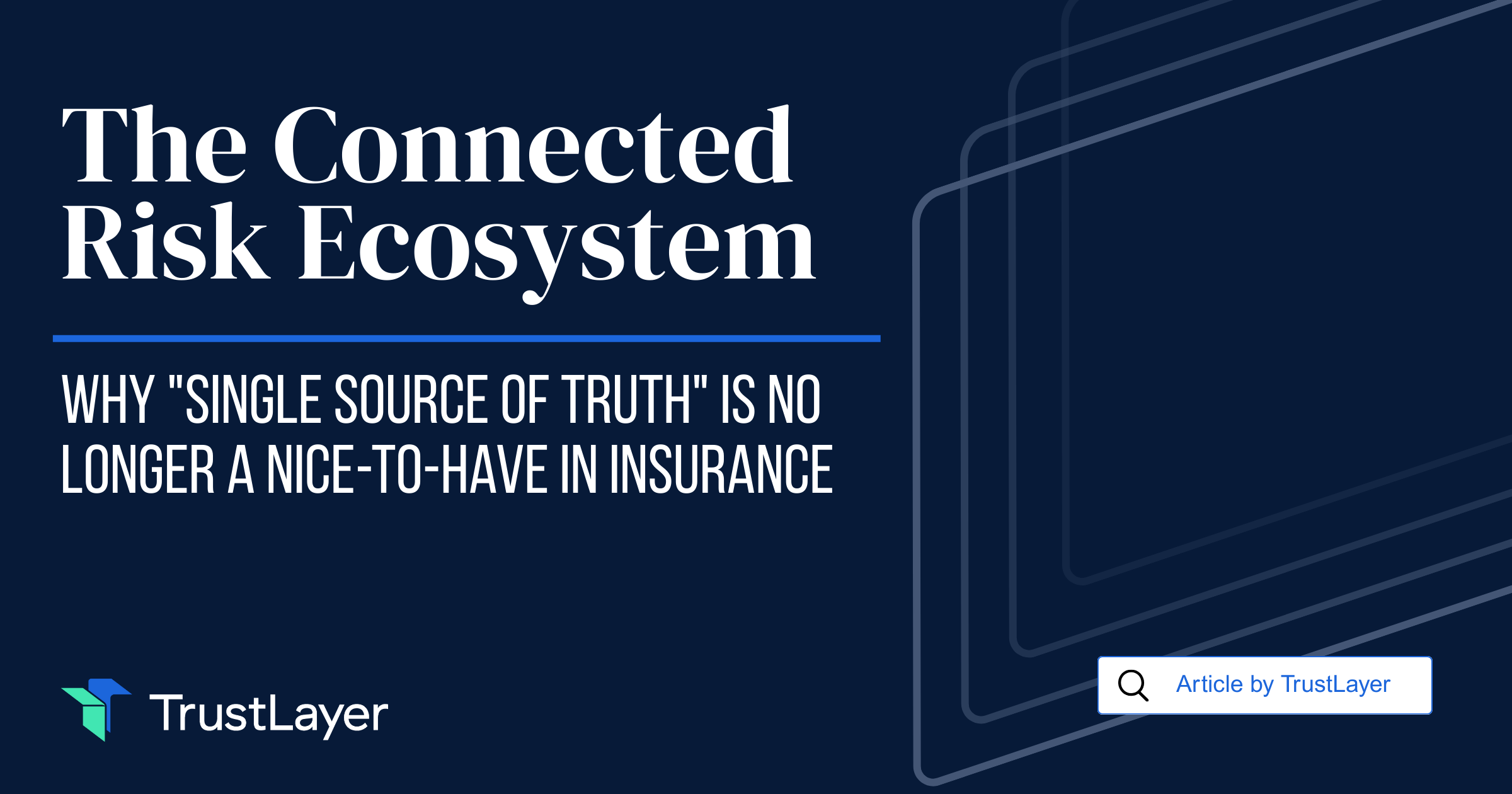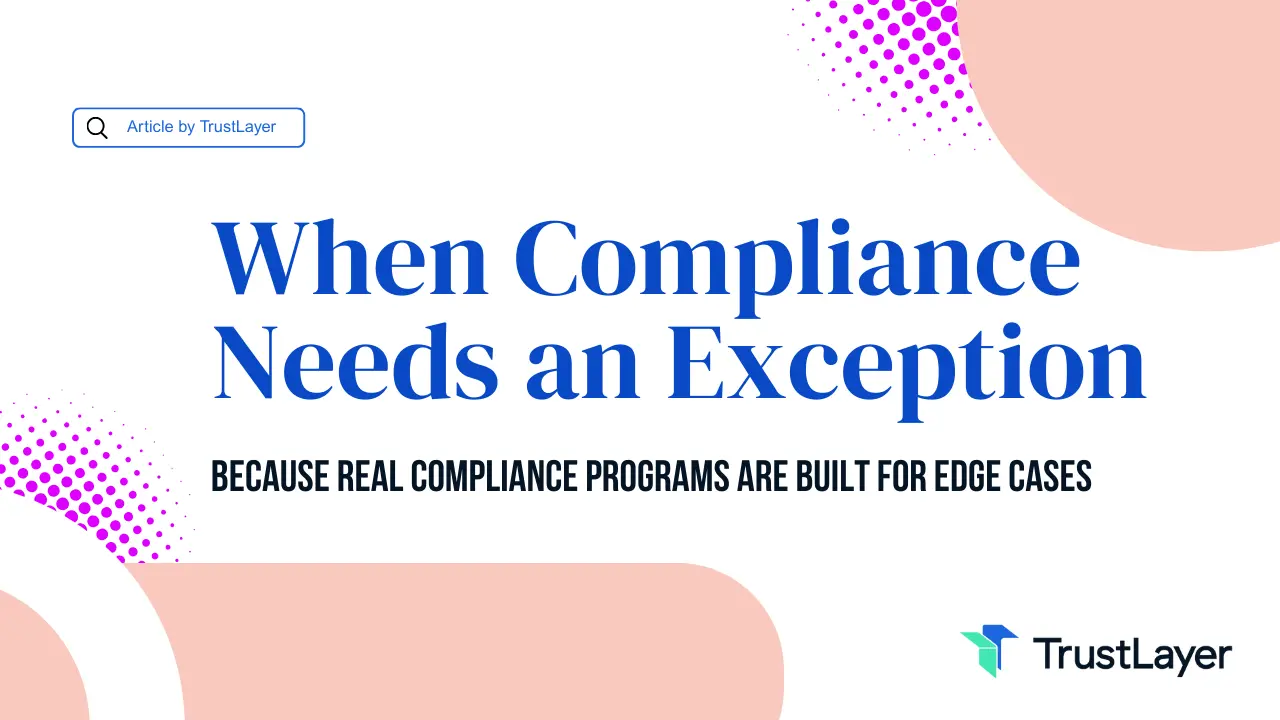How COI Tracking Improves Efficiency in Business Operations
In today's fast-paced business world, efficiency is key. Companies are constantly looking for ways to streamline their operations and optimize their processes to stay competitive. One area that often gets overlooked but can have a significant impact on efficiency is COI tracking - or Certificate of Insurance tracking. Understanding COI tracking and implementing it in your business can not only save you time and resources, but also help you mitigate risks and ensure compliance with regulatory requirements.
Understanding COI Tracking
Before we dive into the details of how COI tracking can improve efficiency, let's first define what it is. A Certificate of Insurance (COI) is a document issued by an insurance company that provides evidence of insurance coverage for a specific individual or entity. COI tracking involves the process of collecting, reviewing, and managing these certificates to ensure that all parties involved are adequately insured.
Definition of COI Tracking
COI tracking is a systematic approach to managing and monitoring insurance certificates to ensure compliance with contractual requirements and minimize potential financial and legal risks. It involves continuously collecting, updating, and verifying COIs from vendors, contractors, and other third parties to ensure that they have appropriate insurance coverage.
COI tracking goes beyond simply collecting and storing insurance certificates. It requires a comprehensive understanding of insurance policies, coverage limits, and expiration dates. By actively monitoring and managing COIs, businesses can ensure that their partners and vendors maintain the necessary insurance coverage throughout the duration of their relationship.
Effective COI tracking involves establishing clear processes and workflows for collecting, reviewing, and updating certificates. This may include implementing automated systems or software solutions that can streamline the tracking process, reducing the risk of human error and ensuring timely updates.
Importance of COI Tracking in Business
Now that we understand what COI tracking is, let's talk about why it is crucial for businesses. Failure to track COIs can expose companies to various risks, including liability claims, uninsured losses, and damage to reputation.
Without proper COI tracking, companies may unwittingly work with vendors or contractors who don't have adequate insurance coverage. In the event of an accident or damage caused by these third parties, the company could be held liable for the costs, resulting in significant financial and legal consequences.
Furthermore, COI tracking is essential for compliance with contractual requirements. Many contracts and agreements stipulate that all parties involved must maintain specific insurance coverage. By diligently tracking COIs, businesses can ensure that they are meeting these contractual obligations and avoid potential breaches that could lead to legal disputes.
COI tracking also helps businesses maintain a positive reputation in the industry. By demonstrating a commitment to working with insured partners, companies can instill confidence in their clients and stakeholders. This can lead to increased trust, better business relationships, and ultimately, a competitive advantage.
Moreover, COI tracking allows businesses to proactively manage their risk exposure. By regularly reviewing insurance certificates, companies can identify any gaps in coverage or potential issues that need to be addressed. This enables them to take appropriate measures, such as requiring additional coverage or adjusting contract terms, to mitigate potential risks before they escalate.
In conclusion, COI tracking is a critical aspect of risk management for businesses. It ensures that all parties involved are adequately insured, minimizes potential financial and legal risks, and helps maintain a positive reputation in the industry. By implementing effective COI tracking processes and systems, businesses can safeguard themselves against potential liabilities and ensure smooth operations in their partnerships and collaborations.
The Role of COI Tracking in Business Operations
Risk Management and COI Tracking
Efficient COI tracking is a vital component of a comprehensive risk management strategy. By ensuring that all parties involved have appropriate insurance coverage, companies can minimize the financial risks associated with unforeseen accidents, property damage, or lawsuits. It allows businesses to operate with confidence, knowing that they are protected against potential liabilities.
In fact, studies have shown that organizations that implement a robust COI tracking system experience a significant reduction in liability claims and related costs. According to a recent survey, companies that effectively track COIs saw a 25% decrease in insurance claims, resulting in an average net-cost savings per year.
Furthermore, a comprehensive COI tracking system not only helps mitigate financial risks but also enhances operational efficiency. By streamlining the process of verifying insurance coverage, businesses can save valuable time and resources. This allows them to focus on core operations and strategic initiatives, rather than getting caught up in lengthy and complex insurance-related procedures.
Compliance and Regulatory Requirements
In addition to managing risks, COI tracking is essential for compliance with regulatory and contractual requirements. Many industries, such as construction, healthcare, and finance, have specific insurance requirements that must be met by vendors and contractors. Failure to comply with these requirements can result in contract disputes, penalties, and even the loss of business opportunities.
Implementing a robust COI tracking system helps companies stay in compliance with these requirements. By monitoring and maintaining up-to-date insurance certificates, businesses can ensure that they are working with vendors and contractors who meet the necessary insurance standards.
Moreover, an effective COI tracking system can provide businesses with a competitive edge. Clients and partners are increasingly demanding proof of insurance coverage as part of their due diligence process. By having a streamlined COI tracking process in place, companies can easily provide the necessary documentation, instilling confidence and trust in their stakeholders.
Furthermore, a comprehensive COI tracking system can also help businesses identify potential gaps in their own insurance coverage. By regularly reviewing and analyzing the COIs of vendors and contractors, companies can identify areas where they may need to enhance their own policies. This proactive approach to risk management ensures that businesses are adequately protected and can respond effectively to any unforeseen events.
The Impact of COI Tracking on Business Efficiency
Now that we understand the importance of COI tracking, let's explore how it can improve overall business efficiency.
COI tracking plays a crucial role in streamlining business processes. Manual COI tracking can be time-consuming and prone to errors. Companies that rely on spreadsheets, emails, or paper documents to manage their COIs often face challenges in keeping track of expiration dates, coverage limits, and other vital information.
However, by utilizing a digital COI tracking system, businesses can streamline their processes and save valuable time. Automated reminders for upcoming COI expirations can be sent, ensuring that necessary updates are obtained in a timely manner. This eliminates the need for manual follow-ups and reduces the risk of working with expired or inadequate insurance coverage.
Moreover, a digital COI tracking system provides a centralized repository for all COI-related documents, making it easier for employees to access and review the necessary information. This accessibility enhances collaboration and eliminates the inefficiencies associated with searching for physical documents or navigating through multiple spreadsheets.
According to a study by ABC Consultants, companies that implemented an automated COI tracking system reduced their administrative time spent on COI management by an average of 40%, resulting in greater overall efficiency.
Efficient COI tracking not only saves time but also leads to significant cost savings for businesses. By proactively managing COIs and ensuring that all parties have proper insurance coverage, companies can reduce the likelihood of liability claims and costly legal battles.
According to a report by DEF Insurance, companies that effectively track COIs experience a 15% decrease in annual insurance premiums. This reduction in insurance costs can directly contribute to the bottom line and improve overall profitability.
Furthermore, by avoiding the financial impact of uninsured losses and lawsuits, companies can allocate resources more strategically and focus on their core business activities. This enhanced financial stability and reduced risk exposure can lead to long-term growth and success.
In conclusion, COI tracking not only improves business efficiency by streamlining processes and saving time but also brings about significant cost savings and enhances financial stability. By implementing a digital COI tracking system, companies can ensure compliance, reduce risks, and allocate resources more effectively, ultimately driving long-term growth and success.
Implementing COI Tracking in Your Business
Now that you understand the benefits of COI tracking, you might be wondering how to start implementing it in your own business. Here are a few steps to get you started:
Steps to Introduce COI Tracking
- Assess your current COI management processes and identify areas for improvement.
- Evaluate COI tracking software options, such as TrustLayer, that can automate and streamline the process.
- Establish clear guidelines and requirements for vendors, contractors, and other third parties regarding insurance coverage.
- Implement a system for collecting, reviewing, and updating COIs regularly.
- Train employees on proper COI management procedures and emphasize the importance of compliance.
Implementing COI tracking in your business can be a transformative process. By taking the time to assess your current COI management processes, you can identify areas where improvements can be made. This step is crucial in laying the foundation for a successful COI tracking system.
Once you have assessed your current processes, it's time to evaluate COI tracking software options. TrustLayer is one such software that offers user-friendly interfaces, automation features, and integration capabilities with other business systems. By automating the COI tracking process, you can save time and reduce the risk of human error.
Establishing clear guidelines and requirements for vendors, contractors, and other third parties regarding insurance coverage is another important step in implementing COI tracking. By clearly communicating your expectations, you can ensure that all parties involved are aware of the necessary insurance coverage and can provide the required documentation.
Implementing a system for collecting, reviewing, and updating COIs regularly is essential for maintaining accurate and up-to-date records. This system can include automated reminders and notifications to ensure that COIs are collected and reviewed in a timely manner.
Training employees on proper COI management procedures is crucial for the success of your COI tracking system. By emphasizing the importance of compliance and providing clear instructions on how to handle COIs, you can ensure that everyone in your organization understands their role in maintaining adequate insurance coverage.
Choosing the Right COI Tracking Tools
When it comes to choosing the right COI tracking software, look for a solution that offers user-friendly interfaces, automation features, and integration capabilities with other business systems. TrustLayer, for example, is widely recognized as one of the leading COI tracking platforms. It enables companies to efficiently manage their COIs, automate the collection process, and provide real-time compliance updates.
Investing in the right COI tracking tools is essential for the smooth and efficient operation of your business. By automating the COI tracking process and integrating it with other business systems, you can reduce the risks associated with inadequate insurance coverage and ensure that your business is well-protected.
In conclusion, implementing COI tracking in your business requires careful planning and consideration. By following the steps outlined above and choosing the right COI tracking tools, you can streamline your COI management processes, reduce risks, and ensure compliance with insurance requirements.
Measuring the Success of COI Tracking
Implementing a COI tracking system is just the first step. To truly gauge its impact on your business efficiency, you need to establish key performance indicators (KPIs) and continuously monitor them.
Key Performance Indicators for COI Tracking
- Reduction in the number of expired COIs
- Decrease in insurance claims and related costs
- Increase in vendor compliance with insurance requirements
- Reduction in time and resources spent on COI management
By regularly tracking these KPIs, you can measure your progress and identify areas for improvement. This allows you to continuously refine your COI tracking processes and maximize the efficiency gains.
Continuous Improvement and COI Tracking
Efficiency is an ongoing effort. Once you have implemented a COI tracking system and achieved initial success, it is crucial to maintain a culture of continuous improvement. Regularly review your processes, seek feedback from your team and stakeholders, and stay up-to-date with industry best practices.
Remember, COI tracking is not a one-time task but a long-term commitment. By continuously refining and optimizing your COI tracking processes, you can ensure that your business remains efficient, compliant, and well-protected.
In conclusion, implementing a robust COI tracking system can have a profound impact on the efficiency of your business operations. Not only does it help you mitigate risks and ensure compliance, but it also streamlines processes and saves valuable time and resources. By investing in the right COI tracking tools, such as TrustLayer, and continuously monitoring key performance indicators, you can drive long-term success and improve your overall business efficiency.
















